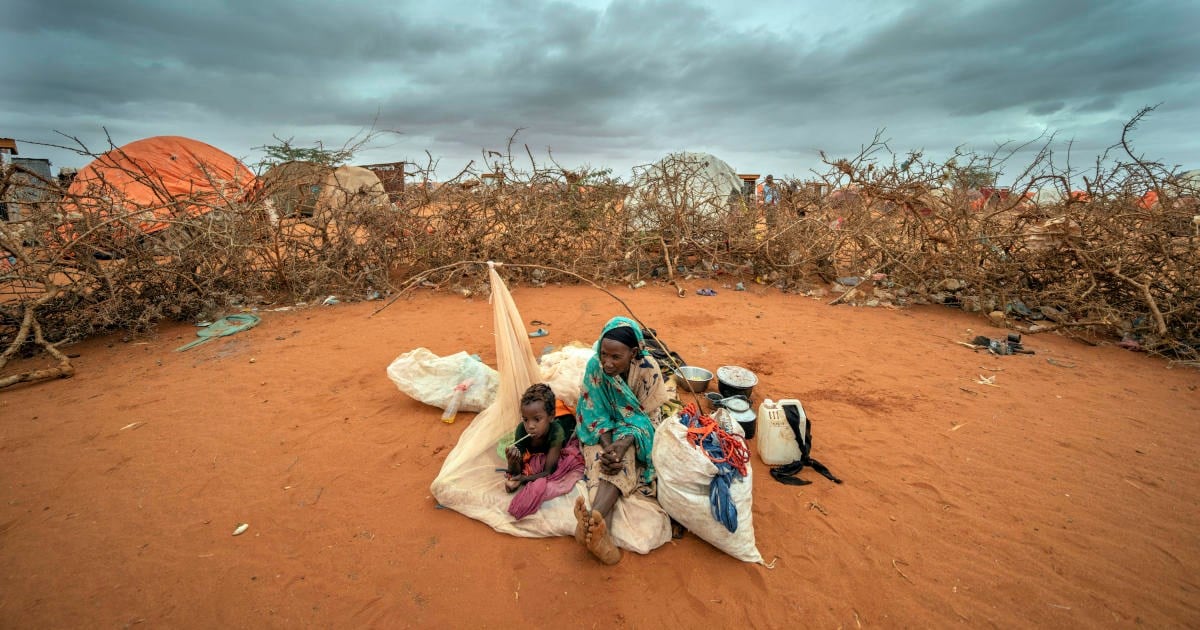Somalia to record 135 deaths a day due to drought: UN study
The worst drought to hit the Horn of Africa in 40 years will threaten 100,000 people in Somalia with catastrophic levels of hunger.
-

A Somali family displaced on the outskirts of Dollow, Somalia, on September 20, 2022 (AP)
A study released on Monday by the Somali Health Ministry, the World Health Organization (WHO), and UNICEF demonstrates that up to 135 deaths a day may occur in Somalia between January and June this year as a result of the record drought taking over the Horn of Africa. The total number of deaths is anticipated to range between 18,100 and 34,200.
The WHO warned earlier this month that the worst drought to hit the Horn of Africa in 40 years will threaten 100,000 people in Somalia with catastrophic levels of hunger.
The study, carried out by the London School of Hygiene and Tropical Medicine and Imperial College London, names extreme weather conditions as the reason that may have contributed to 43,000 "excess deaths" in 2022 as opposed to the 2017 drought - children below the age of five were half of the victims.
Mamunur Rahman Malik, WHO representative to Somalia, said, "We are racing against time to prevent deaths and save lives," adding, "The cost of our inaction will mean that children, women, and other vulnerable people will pay with their lives while we hopelessly, helplessly witness the tragedy unfold."
Read next: Severe African drought expected in 2023: IGAD
International community partially to blame
After five failed rainy seasons in Kenya, Ethiopia, and Somalia led to the deaths of millions of livestock, alongside destroyed crops and the displacement of more than one million people, a sixth rainy season is predicted by weather forecasters to fail as well.
Although famine thresholds set by the UN have not been reached, the organization confirms that more than half of Somalia's people will critically require humanitarian assistance this year.
Somalia was hit by a famine in 2011 which killed 260,000 people, more than half of them children under six, partly because the international community did not act fast enough, according to the UN.
Even though the country witnessed a drought in 2017, leaving more than six million people needing aid, the early and immediate humanitarian intervention helped dodge a famine situation. In August last year, the World Food Programme (WFP) organization said the number of people at risk of starvation in the drought-ravaged Horn of Africa has increased to 22 million.
It is worth noting that the government of Somalia has not been declaring its state of famine as it is concerned that it will undermine public trust and play into the hands of the terrorist group Al Shabaab, just as the military has launched a large-scale offensive against the insurgents, who have plagued the country for decades and continue to launch devastating attacks.
Read more: Despite ceasefire announcement, violence persists in Somaliland
It is also concerned that declaring famine may cause an outflow of people from affected areas into major cities and towns, pressuring already scarce resources and increasing crime.

 3 Min Read
3 Min Read








